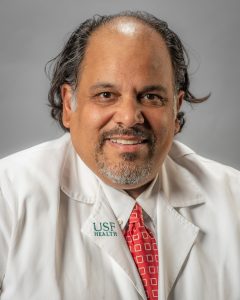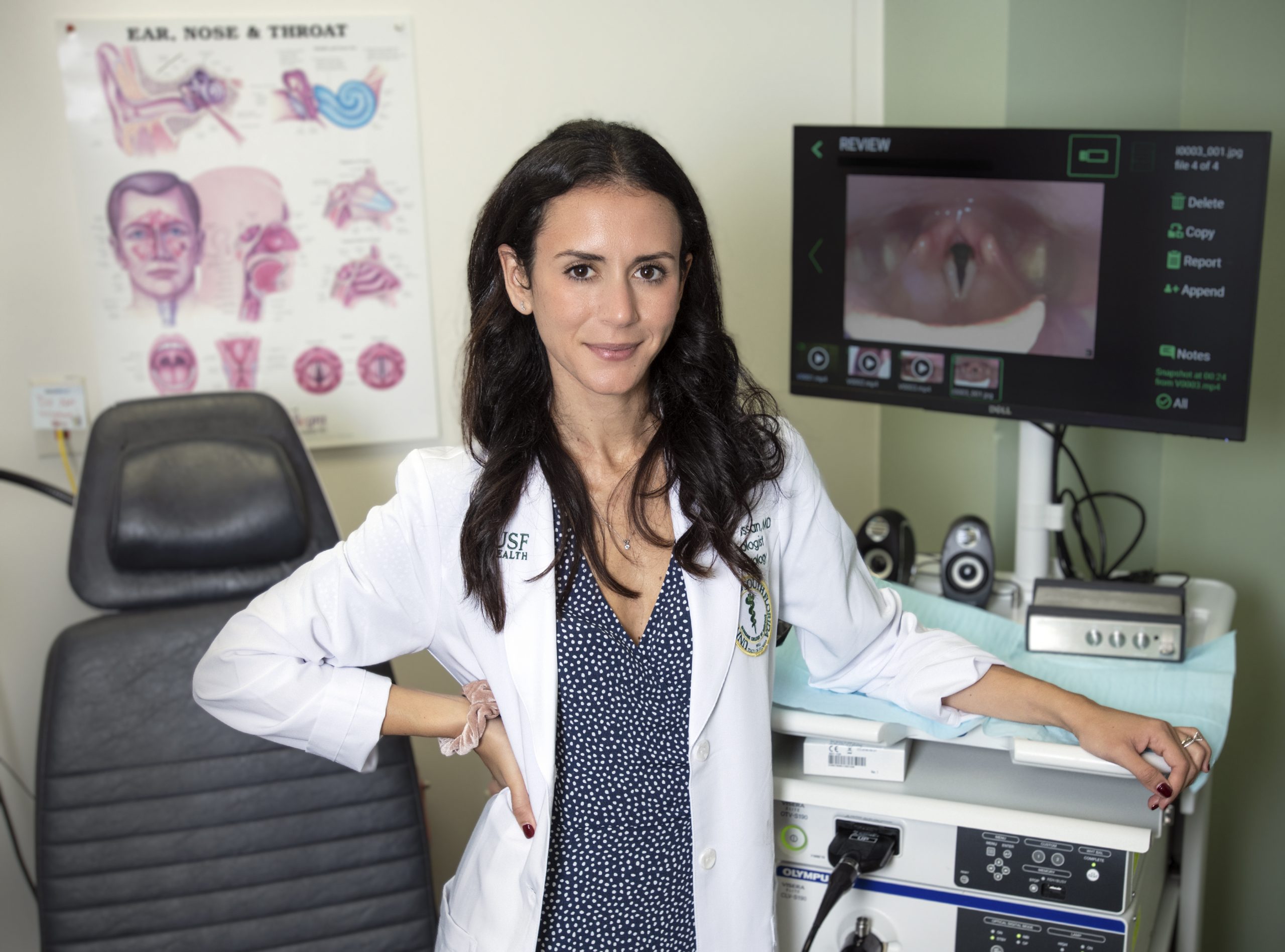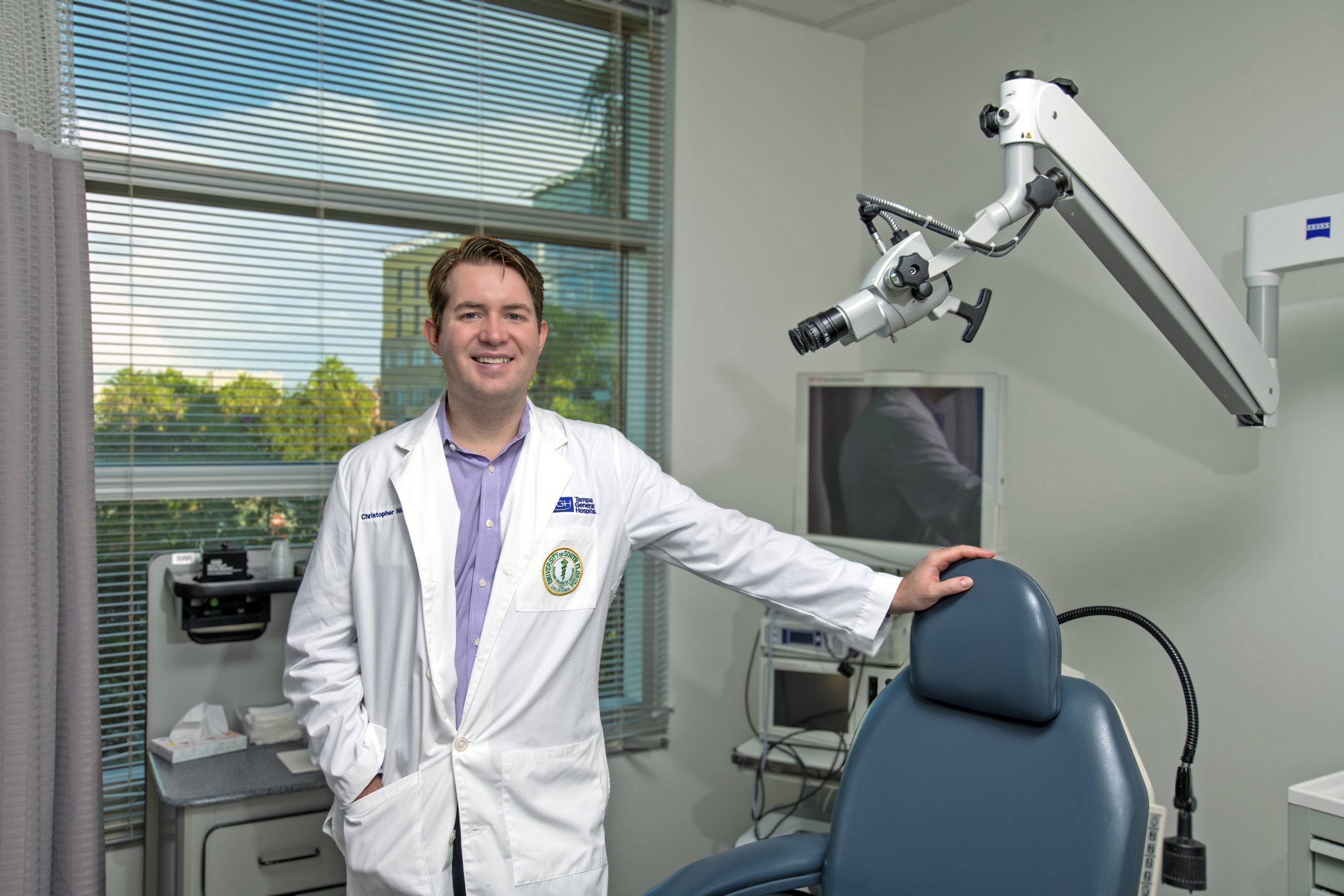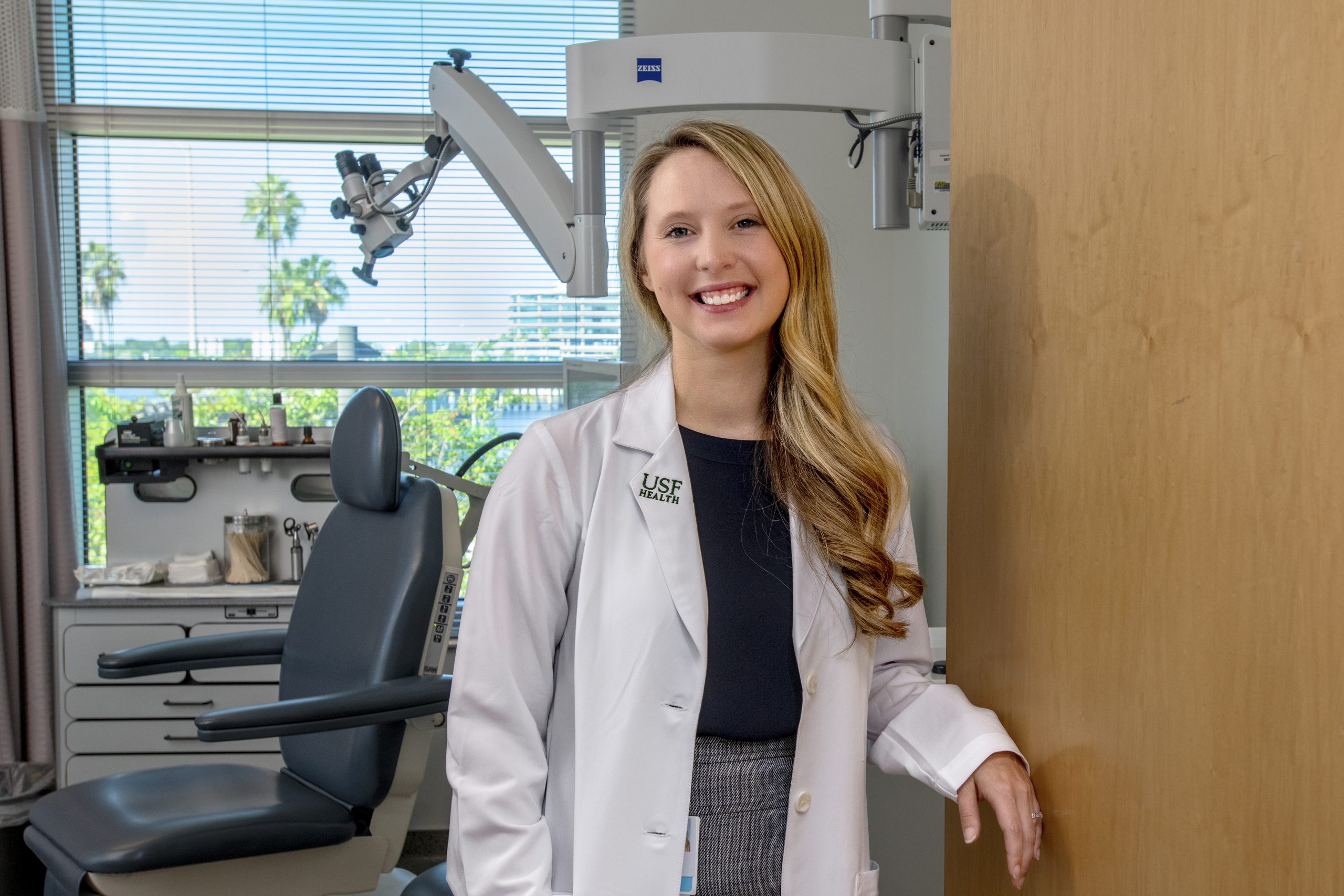Otolaryngology is a mouthful to say, but as a medical specialty treating diseases and disorders of the ears, nose and throat, it’s a crucial one—and demand for its practitioners is growing along with the population in the Tampa Bay area.
In response, USF Health is expanding its Department of Otolaryngology-Head & Neck Surgery. Three otolaryngologists—commonly known as ear, nose and throat (ENT) doctors—have recently joined USF Health to contribute to that expansion. Each brings not only their own commitment to care but also their individual subspecialties to provide a wide variety of important services to patients.

Tapan Padhya, MD, chair of the Otolaryngology department.
“Their addition helps augment our research and surgical education efforts already ongoing within their respective subspecialties,” said Tapan Padhya, MD, professor and chair of the Otolaryngology department. “Our department is already recognized as a prominent academic ENT program in Florida and their addition and enthusiasm will only add to our regional and national reputation.”
Dr. Yaël Bensoussan is an attending laryngologist and an assistant professor in the Morsani College of Medicine. She has advanced expertise in voice, swallowing and upper airway evaluation and treatment.
Laryngologists are throat specialists who help patients with voice, swallowing and upper airway disorders. After Dr. Bensoussan finished her otolaryngology residency training in Canada at the University of Toronto, she completed additional years of training specializing in the throat at the University of Southern California in Los Angeles.
Dr. Bensoussan’s background also includes a degree in speech pathology and a prior career in music, which led her to her passion for voice and laryngeal disorders.
“I can tell when a singer has a problem,” Dr. Bensoussan said. When Dr. Bensoussan was younger, she was suddenly unable to sing because of nodules that had developed on her vocal cords. Working with a speech pathologist helped her regain her singing abilities, and the nodules disappeared with therapy.
Dr. Bensoussan has started the USF Health Voice Center, together with her speech pathology partner, Stephanie Watts, PhD, which provides services to people with voice, upper airway, and swallowing disorders and is the only academic voice center in the area.
“I’ve always had the dream to open a multidisciplinary voice center to make sure we all work together to provide the best care for patients,” Dr. Bensoussan said. “My goal is to introduce innovation within our center. To bring in new equipment so we can continue to provide expert care to our patients.”

Yael Bensoussan, MD, is a laryngologist that specializes in voice, airway and swallowing disorders involving the voice box and the throat.
The rapid growth of the Department of Otolaryngology-Head and Neck Surgery is what attracted Dr. Bensoussan to USF Health.
“It’s really exciting to hop on a wagon that’s going fast, right?” she said. “Clearly, this was one of the biggest growing departments. I can contribute to the growth, and that’s the exciting part of the job, for sure.”
Dr. Nickel is also trying to be as minimally invasive in his treatments as possible. He uses a robot with articulating arms and 4K cameras to remove cancerous tumors in two to three hours. Prior to the use of robots, the surgery to remove the tumors could take about 10 hours and leave considerable scarring.
“It’s amazing,” he said. “What that allows us to do is to minimize co-morbidities and maximize function while still treating the cancer.”
He continued, “In using robotics, we can give less radiation and chemotherapy on the back end, which helps patients mend tremendously.”
USF Health offers patients and doctors the latest in technology and equipment. “We’re very fortunate to practice here because we have state-of-the-art equipment,” Dr. Nickel said. “The robot we are using is the best available. We really have a team that understands this type of minimally invasive surgery.”
Sometimes a patient will lose his or her jaw because of cancer, and Dr. Nickel specializes in microvascular free tissue reconstruction. That involves taking muscles and bones from another part of the patient’s body, such as the arm or leg, and transposing it to the jaw. Using a microscope, Dr. Nickel then sews blood vessels back together. The new tissue allows the patient to restore form and function.

Christopher Nickel, MD, has clinical expertise is in treating cancers of the head and neck.
What bought Dr. Nickel, who did his residency training at USF Health, back?
“The growth here has been incredible,” he said. “The commitment at USF is really helping us take off and become a cutting-edge department.”
Dr. Lindsey Ryan is an assistant professor at the Morsani College of Medicine. She is a rhinologist, which focuses on treating diseases and conditions of the nasal cavity and sinuses—including chronic sinusitis, nasal polyps, allergic rhinitis, deviated nasal septum and sinonasal tumors.
Skull-based surgery is a specialty for Dr. Ryan. She can remove tumors from the nasal cavity and front of the brain using an endoscope, which is a minimally invasive technique.
“(The technique) gives patients the opportunity to potentially have everything done through the nose,” Dr. Ryan said. “There’s no external deformity; other people wouldn’t even know that you had surgery.”
Dr. Ryan also specializes in treating sinus polyps, which are benign growths on the lining of a nasal passage or the sinuses. About 30 percent of patients with chronic sinusitis, a long-lasting inflammation and infection of the sinuses, have sinus polyps. If medications fail, those patients will require endoscopic surgery.
Dr. Ryan did her residency training at USF Health before completing a fellowship training in rhinology and skull based surgery.
“I did my five years of residency training here, and so I’m really excited to come back and join with the faculty that trained me and made me the otolaryngologist that I am today,” she said. “I’m very excited about it.”
Dr. Ryan said she wants to reciprocate the residency education she received by educating other residents.
“I feel like I had excellent training here,” she said. “So, to be able to educate the next generation of otolaryngologist-head and neck surgeons is really important to me.”

Lindsey Ryan, MD, is a rhinologist. She focuses on treating diseases and conditions of the nasal cavity and sinuses.
Dr. Ryan is looking forward to working in an interprofessional environment to improve patient outcomes.
“That’s pretty unique actually to have the ability to provide multidisciplinary care for patients,” she said. “Being able to grow and expand—that’s our goal. And it’s definitely my goal.”
